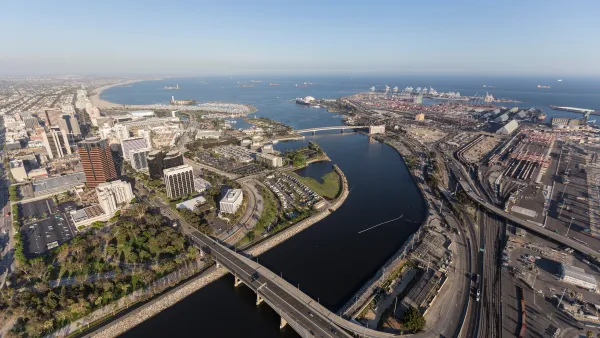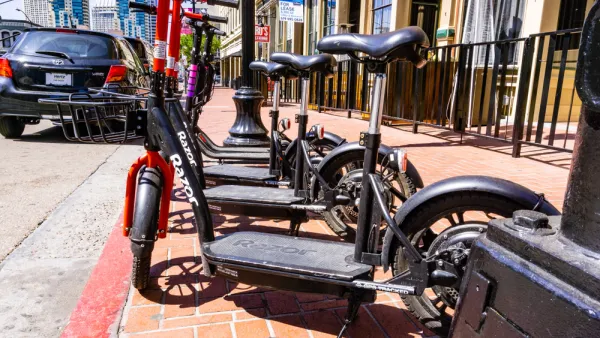At some point in the past 35 years, the word infrastructure became common in policy discussions and even in the common tongue. But why did we suddenly prefer the word "infrastructure" to other terms like "public works"?
Alex Marshall pens an article inspired by the word "Infrastructure" and its strange rise to prominence over the past 50 years. According to Marshall, "this word 'infrastructure,' which I just managed to use five times in one paragraph without explanation, was not in common discourse 35 years ago in the U.S. and was just about unknown 50 years ago. Where did it come from, and what does its rise mean?"
To back up that claim, Marshall uses Google's Ngram Viewer, discovering that in English, "'infrastructure' was hardly used until about 1960, after which it climbed steadily, taking off after 1980."
So what does it mean, that the word has taken a much more prominent place in the common lexicon? "For me, the way this new word rose up and replaced older terms like 'public works' is interesting and significant. Building roads and bridges where none existed before – 'public works' -- is one thing. Viewing such projects as interconnected, mutually dependent systems that move us from place to place and serve as a primary engine of commerce – 'infrastructure' -- is quite another."
The article includes more evidence about how the usage of the word infrastructure has changed over the years along with more of the implications of that evolution.
FULL STORY: Why the Word ‘Infrastructure’ Replaced 'Public Works'

Analysis: Cybertruck Fatality Rate Far Exceeds That of Ford Pinto
The Tesla Cybertruck was recalled seven times last year.

National Parks Layoffs Will Cause Communities to Lose Billions
Thousands of essential park workers were laid off this week, just before the busy spring break season.

Retro-silient?: America’s First “Eco-burb,” The Woodlands Turns 50
A master-planned community north of Houston offers lessons on green infrastructure and resilient design, but falls short of its founder’s lofty affordability and walkability goals.

Test News Post 1
This is a summary

Analysis: Cybertruck Fatality Rate Far Exceeds That of Ford Pinto
The Tesla Cybertruck was recalled seven times last year.

Test News Headline 46
Test for the image on the front page.
Urban Design for Planners 1: Software Tools
This six-course series explores essential urban design concepts using open source software and equips planners with the tools they need to participate fully in the urban design process.
Planning for Universal Design
Learn the tools for implementing Universal Design in planning regulations.
EMC Planning Group, Inc.
Planetizen
Planetizen
Mpact (formerly Rail~Volution)
Great Falls Development Authority, Inc.
HUDs Office of Policy Development and Research
NYU Wagner Graduate School of Public Service




























